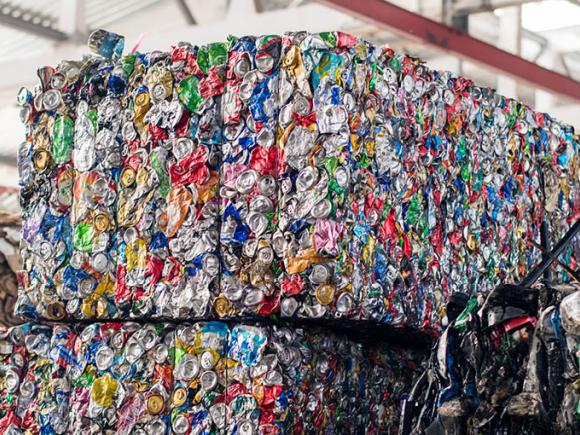
Recycling
AUC’s 48 recycling stations promote responsible waste disposal and campus sustainability.
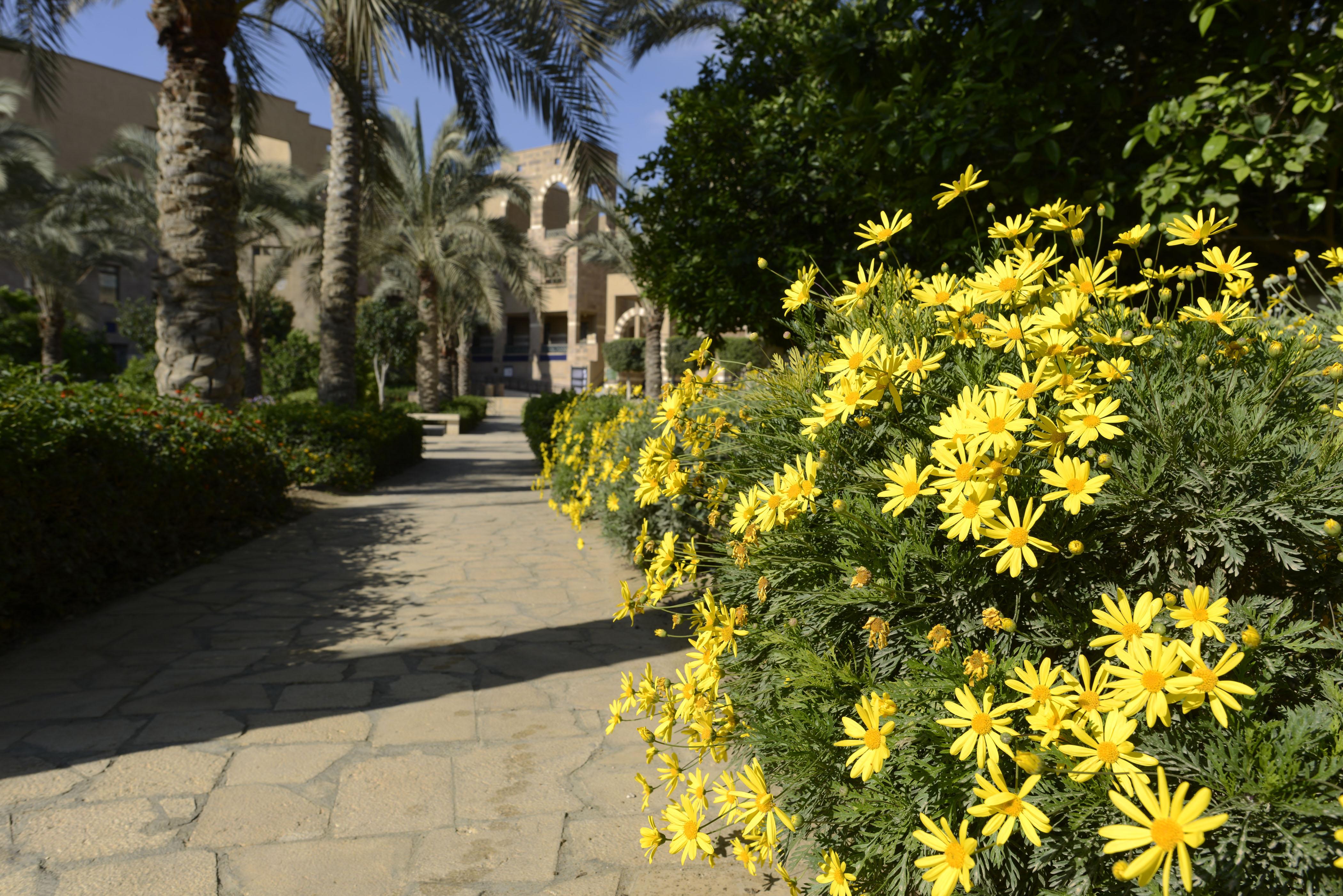
AUC tackles sustainability from every angle, reducing the University's carbon footprint, promoting environmental research and education, implementing recycling programs and raising public awareness.
Sustainability is deeply integrated into every aspect of the AUC experience. We are committed to creating an environmentally conscious community that practices sustainability in all aspects of living and learning. Through innovative research, programs, initiatives and events, we actively promote responsible and optimized resource management to minimize AUC’s impact on the environment and maximize contributions to a more sustainable world.

AUC’s 48 recycling stations promote responsible waste disposal and campus sustainability.
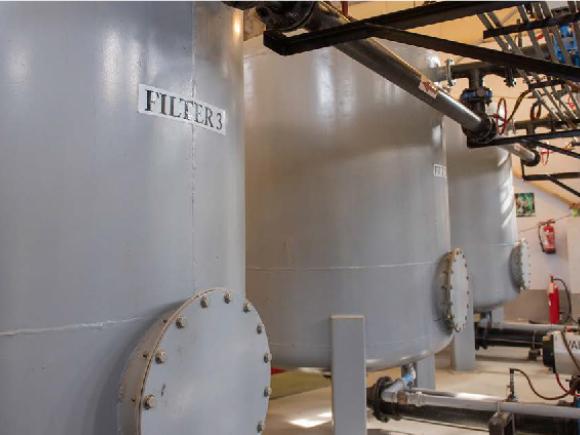
As stewards of the region’s natural resources, AUC uses treated wastewater to irrigate landscaped areas of campus to lower its carbon footprint and embrace a low-cost alternative that helps protect Egypt’s water supply.
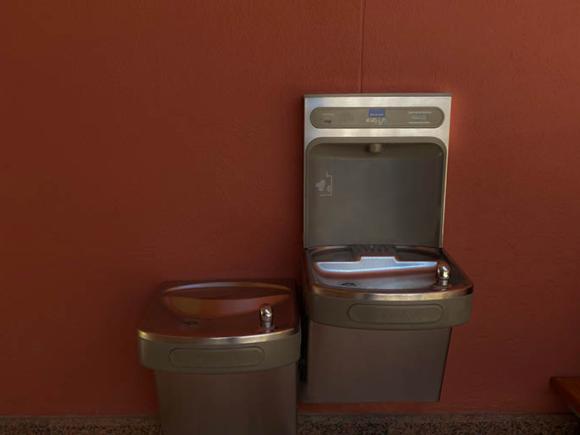
Staying hydrated is an important element in the pursuit of excellence. AUC has upgraded its on-campus drinking water stations in an effort to reduce the number of disposable plastic water bottles used on campus. With 35 filtered water stations on the New Cairo campus and 23 stations on the AUC Tahrir Square campus, a cool and sustainable drink of water is always available.
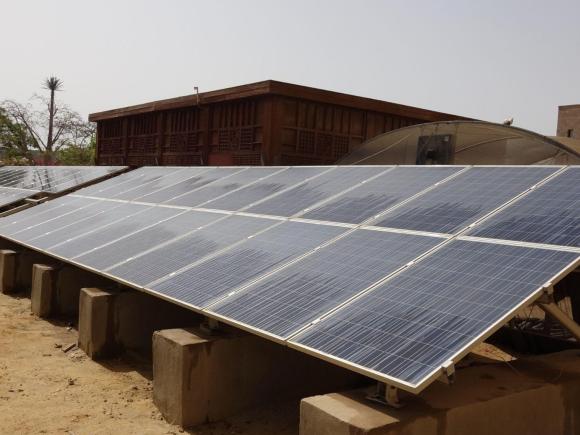
As the serious impacts of global warming loom large, AUC continues to adopt practices, systems and tools like variable speed drives used in HVAC equipment, LED lighting, occupancy sensors in classrooms and other tools to manage temperature and lighting adjustments based on actual use.

Designed with student safety and convenience in mind, AUC’s main plaza areas are pedestrian-only zones, and pedestrian paths run throughout campus to make getting around easy. Bike paths also travel around campus, punctuated by bike racks and stations for lockup.
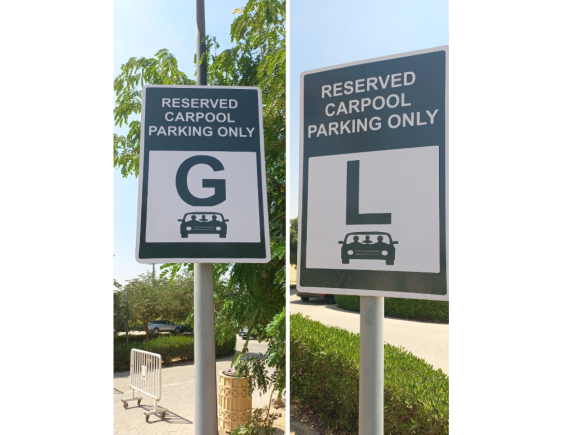
AUC supports sustainable commuting through a comprehensive bus service and free on-campus parking for carpool drivers, reducing traffic, emissions and pollution.
Check out how AUC is managing its water, waste and energy resources.
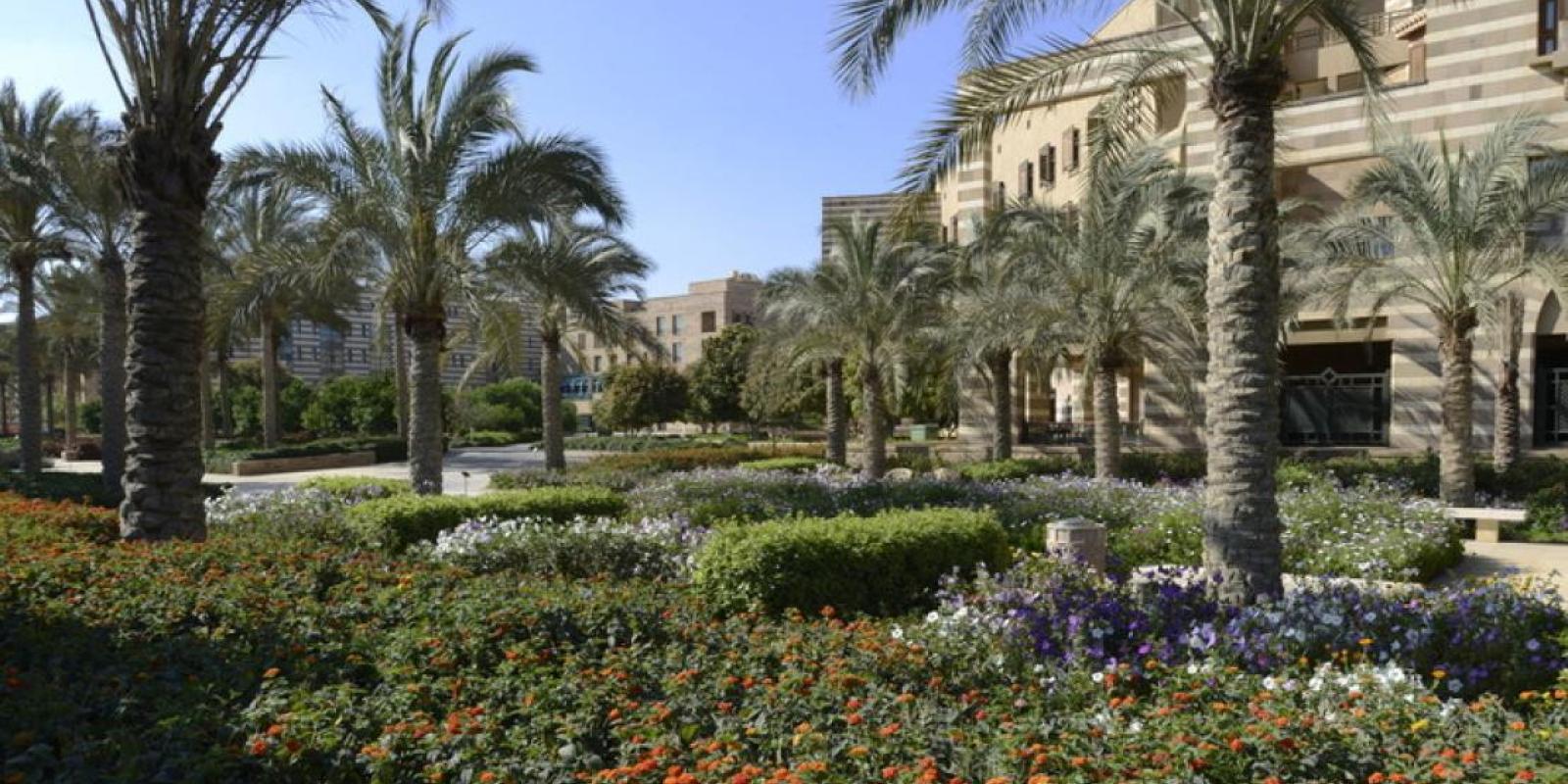
The Office of Sustainability is responsible for addressing AUC’s environmental challenges, including climate change, resource scarcity, pollution, and waste management.

AUC is a sustainability trailblazer among the region’s higher education institutions, setting an example for others and going beyond the boundaries of its campus to achieve tangible environmental and social impact. From developing green strategies and promoting renewable energy sources to engaging with the community and equipping future leaders with a sustainability mindset, AUC addresses critical environmental, social and governance concerns to ensure the sustainability of our society and world.
In 2022, AUC became a signatory to the UN-backed Race to Zero Campaign for Universities and Colleges and formed a task force of faculty, staff and students to develop the University’s Net-Zero Plan. AUC aims to reduce carbon emissions by 2035 and achieve a nearly net-zero campus by 2050 through a series of planned initiatives.
Established in response to worldwide climate change challenges. The initiative includes research, student activities, teaching and learning, as well as outreach activities.
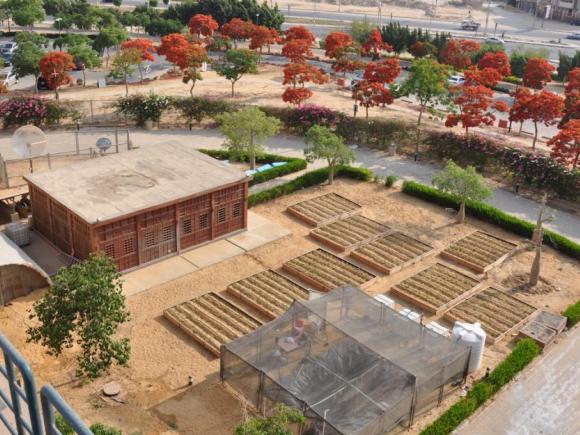
The center guides sustainable development efforts, providing holistic academic programs, applied interdisciplinary research, and community services for improving lives, livelihoods and safeguarding natural resources.
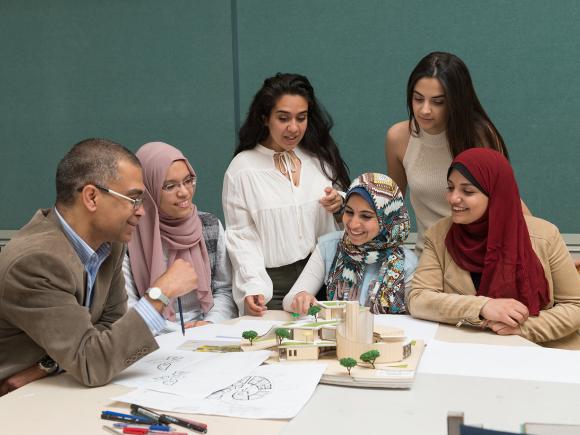
AUC provides multiple academic programs on sustainability, which aim to educate innovative and visionary leaders with a holistic understanding of the developmental challenges in today’s world.